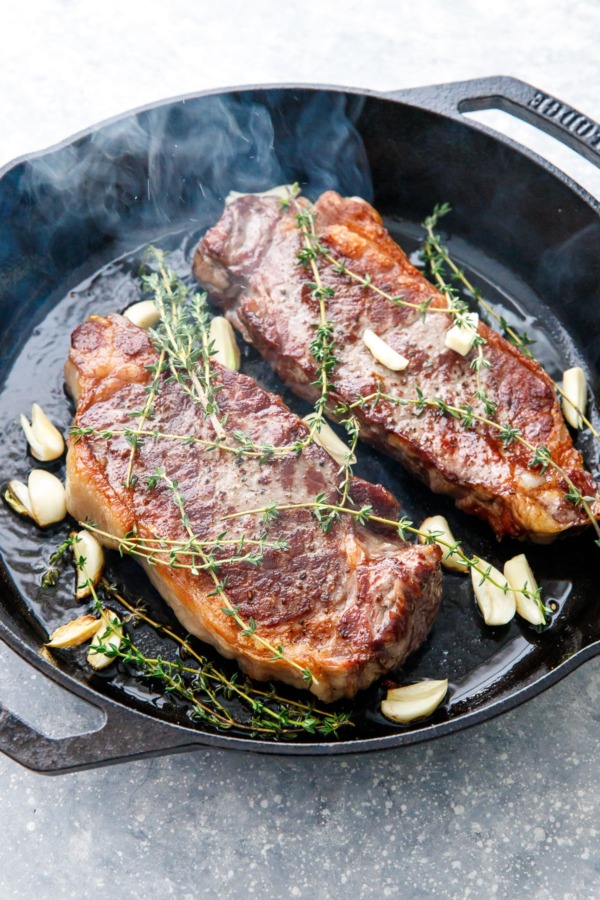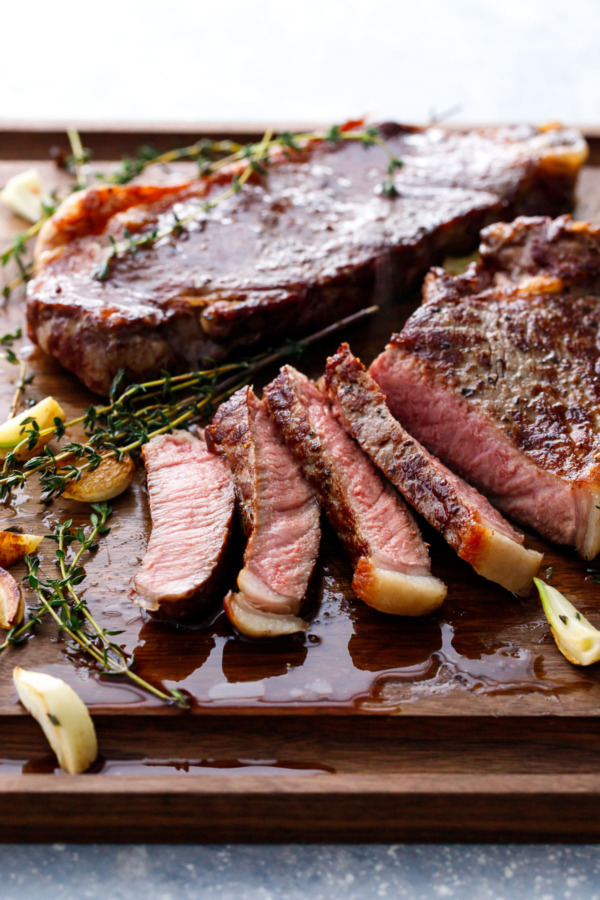The reverse sear is our favorite method for perfectly-cooked steaks: roasted low and slow in the oven and finished fast in a sizzling hot skillet, the result is tender and juicy steaks that are the perfect shade of pink all the way through.
Rather than searing your steaks first and finishing them in the oven, try the reverse sear method for optimal results every time. Granted, it does take a bit longer overall, but it’s a much more reliable and consistent method, producing tender and juicy steaks perfectly cooked every time.

Taylor first started to explore the reverse-sear method when we were researching recipes for our New Year’s prime rib. We had spontaneously picked up a small piece of meat at the market that week, and quickly realized we had no idea how to cook it.
Traditional steak and prime rib recipes have you sear the outside of the steak first in a sizzling hot skillet (which seals in the juices, apparently), and then finish it in a hot oven.
However, we’ve found doing the exact opposite is a better and more reliable way: cook the meat first in a low-temperature oven until it comes up to temperature, and then finish it in a screaming-hot skillet to create that perfect outer crust.
What you end up with is a piece of meat that is perfectly pale pink all the way through—instead of the traditional method where the outer ring is gray and only the inner-most strip is still pink. You’d get similar results cooking with a sous vide (which has a similar principle, bringing the meat up to temperature slowly and evenly).

Now, it might take a few tries at this before you find your optimal temperature. The ‘perfect’ temperature for you will probably different than ours, it just depends on how you like your steak.
Traditional guidelines say to cook a steak to 125 degrees F for medium. With the final sear at the end of this process, however, we found that stopping 5-10 degrees short of this to be just right. For us, 115-118 produced a perfect medium. If you like your steaks a bit more medium-rare, 108-110 or so would be ideal.
Cooked in this fashion, a good piece of meat needs little more than a sprinkling of salt and pepper (sound familiar? Our favorite oven-roasted chicken breasts are similar in that regard). We did choose to add some fresh thyme and garlic cloves at the very end, just for a bit of added color and interest.
from Love and Olive Oil https://ift.tt/2GZ4sNg


No comments:
Post a Comment